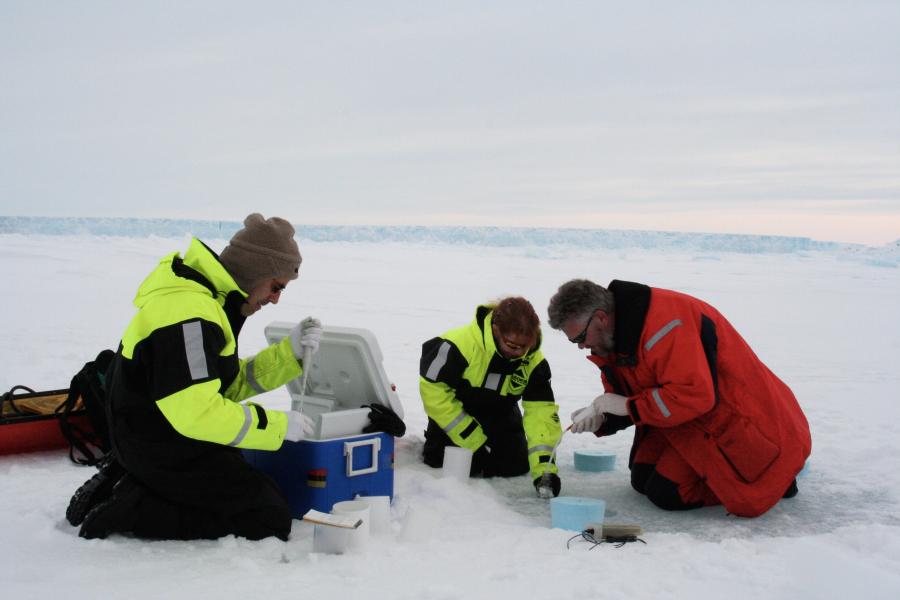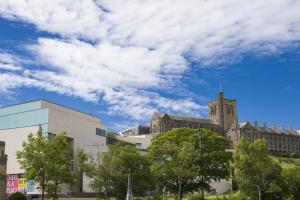The Polar Medal may by conferred on citizens of the United Kingdom of Great Britain and Northern Ireland who have personally made conspicuous contributions to the knowledge of Polar regions or who have rendered prolonged service of outstanding quality in support of acquisition of such knowledge.
This award is a recognition of David’s research and leadership in both the Arctic and Antarctic, in which he has done much to enhance our understanding about the ecology and chemistry of the frozen realms of floating sea ice that dominate both the Antarctic and Arctic Oceans. He started his polar research in the early 1990s at the Alfred Wegener Institute in Bremerhaven. Much of his field research took place in the 24 years David held various academic posts at Bangor University (1996 to 2020). In 2020 he moved to the University of Helsinki where he continues his Arctic Research as the Professor of Arctic Ecosystems Research.
I am immensely proud to receive the Polar Medal, but was fully aware as I received it there are so many colleagues who were closely involved in the adventure that I have enjoyed since my first Antarctic trip in 1992.
At the investiture, it was great to be able to talk with the Prince of Wales, albeit briefly, about the impact of global climate change on the Arctic.
Polar work rewarded


This is timely and well-deserved recognition of the many years of leadership, endeavour and research excellence David has undertaken at, figuratively, both ends of the Earth. His work has undoubtedly helped highlight the important role the Arctic regions play on a climate change context.
In recent years David has helped lead two major UK research programmes for the Natural Environment Research Council (NERC). Both investigated the major environmental changes taking place in the Arctic resulting from climate change: The £15million Arctic Research Programme (2010-2016) and the £20million Changing Arctic Ocean Programme (2015-2021). The latter was in collaboration with the German Federal Ministry of Education and Research (BMBF).
This latest award follows that in 2020 by The Government of the British Antarctic Territory who named an Antarctic glacier, Thomas Glacier (Palmer Land, Antarctic Peninsula), in recognition of the Antarctic aspects of his work.
The first UK polar medal to be instituted was the Arctic Medal in 1857. In 1904 it was renamed the Polar Medal and has been awarded to some of the most recognised UK explorers and scientists working in Arctic and Antarctic regions: Including members of Sir Ernest Shackleton’s expeditions in 1907–09 and 1914–17, as well as members of Captain Scott’s Terra Nova Expedition to the South Pole in 1910-1913.





